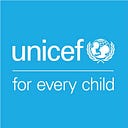Quality Education for all
Stepping forward ON INCLUSIVE EDUCATION in Cameroon
UNICEF in its relentless efforts to ensure access to and quality of education for every child is scaling up work on inclusive education in Cameroon. The multi-stakeholder strategic workshop on inclusive education organized by UNICEF in partnership with the Ministry of Basic Education from the 9th to the 13th of March 2020 aims at providing a platform for the multiple stakeholders to discuss and come up with strategies to further foster inclusive education in Cameroon.
The Cameroonian government in its strategic vision and in line with Sustainable Development Goal 4 is committed to ensuring quality education for all. While the government together with its partners are in the process of developing the education sector strategy for the next 10 years, the 2017–2018 statistical yearbook shows limits as to the enrolment of children with disabilities or differently abled in schools. A policy document on Inclusive Education is in draft, and an Inclusive Education model is being piloted in 68 schools across the country.
Regrouping over a hundred participants from all ten regions of Cameroon at the conference hall of the Djeuga Hotel in Yaoundé, the objectives of this seminar among others include understanding the key data gaps on inclusive education in Cameroon and the deep reasons for the exclusion of the differently abled in the education system, analyze the draft inclusive education policy and design a 2nd pilot model for inclusive education for rural Cameroon.
The expectations at the end of this seminar is that beyond the open platform for dialogue, the lessons and experiences learnt from national and foreign models will: contribute to the design of a 2nd pilot of inclusive education model; ensure that the draft policy addresses all the various pockets of exclusion due to disability; and through a complex and transformative approach altogether improve access to education and learning outcomes for all differently abled children.
The barriers faced by children living with physical and mental disabilities in Cameroon are undeniable. They range from social stigma and lack of vital resources, to insufficient and inadequate facilities for their education and development. Social exclusion prevents these children from thriving and being valued in the society. Testimonies from parents of children who suffer from cerebral palsy paint a sad picture of the daily challenges they face. A parent confessed that being tired of having the child shunned in school, she had to pull the child out of school, and quit her job in order to carter for her daughter at home.
With the intention to change this deplorable practice, associations like the Healthy Environment for Living People (HELP) and Association de Soutien aux Enfants Infirmes Moteurs Cerebraux (ASEIMC), committed to creating open spaces for mentoring and chartering for children with special needs. Technological solutions can and shall be mobilized for social inclusion. Example of this has been provided by a youth-led digital start-up CAYSTI.
Inclusive Education is a process and an attitude, where every child is welcomed and valued in the classroom, regardless of ability or disability, the doors of education are open to all children, giving them the help they need to learn, and to socialize. As the Canada High Commissioner stated in this remarks — Education has a transformational role… where schools can be the first platform for making the society a better place for all categories of children and people, including those with disabilities.
In this seminar partners have embraced this attitude and built a common vision. The next steps include the revision and finalization of the draft policy on inclusive education, under the leadership of MINEDUB, ensuring that all possible pockets of exclusion are addressed by the policy. Finally together with governmental partners and donors, UNICEF will support the implementation of a pilot of inclusive education models in rural schools of the Far North, East, Adamawa, Littoral, West, North West and South West: the pilot will provide access to quality education for thousands of children with various types of disabilities in 2020 onwards.
The workshop has been organized in the framework of the Inclusive Education project generously funded by the Global Affairs Canada and carried out in partnership between UNICEF and Government of Cameroon.
